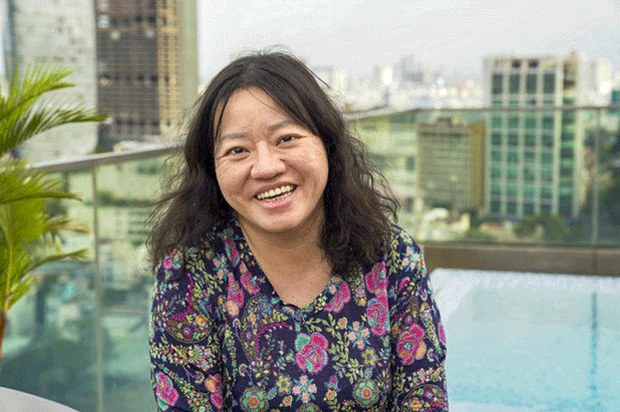Journalists in Cambodia who attempt to report on illegal logging and land disputes often face threats from government officials – including from officials who work in the environmental field, the editor-in-chief of an independent media outlet said Thursday.
“These individuals threaten to file a lawsuit when we publish reports they don’t like, or they do something [to intimidate us], or ask us to delete what we reported,” said Mee Din of the League of Democratic Journalists at a Phnom Penh gathering of 200 people marking World Press Freedom Day, May 3.
UNESCO chose the theme of “Journalism in the Face of the Environmental Crisis” for this year’s World Press Freedom Day.
But journalists across Asia – from Myanmar to Vietnam and Hong Kong – face threats, repression, and imprisonment for their reporting on all issues.
Over the last year, Vietnam has ramped up efforts to target journalists and bloggers, including RFA contributors, said Bay Fang, Radio Free Asia’s president and chief executive.
In Hong Kong, once a bastion of free media and expression in Asia, the passage of the national security law known as “Article 23” raised safety concerns for RFA reporters and staff members. The organization closed its bureau in March.
World Press Freedom Day “serves as a reminder of the resilience of journalists,” Fang said. “But it’s also a reminder of the immense threats they face, from transnational repression to digital harassment, to imprisonment and even death,” she said in a video statement on Thursday.
“Press freedom is a human right – one that is integral to a healthy global society. But, sadly, as we are witnessing in Asia and around the world, it is not a guarantee.”
Squelching press freedom
Later this month, Vietnamese journalist and author Pham Doan Trang, who is serving a nine-year sentence after being accused of generating “anti-state propaganda,” will be awarded the 2024 PEN/Barbey Freedom to Write Award – in absentia.
Trang published several books about democracy, including “Non-Violent Resistance,” “Politics for the Common People” and “A Handbook for Freedom Fighters.”
In Cambodia, 15 journalists have been killed since 1994 – 12 of them were reporting on sensitive issues when they died, according to human rights group Licadho.
Thursday’s gathering at a Phnom Penh hotel comes more than a year after the government ordered the closure of the Voice of Democracy, one of the last independent media outlets in the country.
Cambodian journalists highlighted the harassment, persecution, and violence they face in the country, even though the country’s 1993 constitution guarantees press freedom. Civil society officials and environmental activists joined editors and reporters in urging the adoption of an information access law.
“If that draft law is passed and goes into effect, it would be easier for journalists as well as the public to get information,” said Chhorn Chansy, the editor-in-chief of CamboJa.
Jailed by Myanmar’s junta
In Myanmar, award-winning documentary filmmaker Shin Daewe was sentenced to life in prison in January for violating the Anti-terrorism Law.
The 51-year-old is known for her work highlighting the challenges facing Myanmar’s environment and the impact of conflict on civilians following the 2021 military coup.
The prison sentence was seen as another bid by the military junta to stamp out criticism by using lengthy sentences to instill fear.
Since the coup, the junta has revoked the publishing licenses of 14 news organizations, according to the Detained Journalists Information Myanmar group.
Last year, the New York-based Committee to Protect Journalists ranked Myanmar as the second-worst country in the world – after China – for arresting and imprisoning journalists.
But the junta doesn’t just repress members of the news media, said Maw Oo Myar, senior reporter for the Kantarawaddy Times, a media outlet that operates in Kayah state. They also arrest and punish journalists’ sources, he said.
“Even the people with whom we have friendly relations do not warmly welcome us if they know we are working for news,” he said. “The public is also reluctant to answer the questions for news freely and confidently as before.”
In areas controlled by rebel forces, it can be easier to get information, but there are only limited protections for journalists, he added.
Another challenge for journalists covering Myanmar is the junta’s efforts to spread misinformation and to confuse people with “ideological delusions, religious delusions, and social delusions,” said Seng Mai Maran, the editor-in-chief of the online Myitkyina News Journal.
“The news media now have one more responsibility in countering fake news,” he said. “People aren’t always in the right situation to properly judge the ‘true news’ and ‘misinformation.’”







